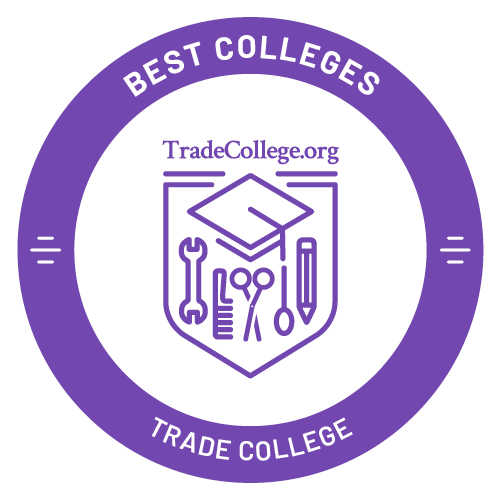Find Trade Colleges
2023 Best Associate Degree Trade Schools in Vermont
With all the trade school programs available today, it can be tough to choose which one is the best for you. Along with traditional schools that require in-person attendence, you can attend one of many reputable online schools. Some programs even offer a hybrid experience.
To help you arm yourself with the information you need to make your decision, Trade College Search has developed this Best Associate Degree Trade Schools in Vermont ranking. This report analyzed 1 schools in Vermont to see which ones offered the best associate degree programs for trade school students.
View our full ranking methodology.
Featured schools near , edit
Top Trade Associate Degree Schools in Vermont
Learn more about these excellent schools below:
Our analysis found Vermont Technical College to be the best school for trade school students who want to pursue a associate degree in Vermont. This small public school is located in Randolph, Vermont, and it awarded 275 associate degrees in 2021-2022.
The average in-state tuition and fees for students at Vermont Tech is $15,546. Those students who come from outside the state pay an average of $29,502. Associate Degree recipients from Vermont Tech accumulate an average of $15,886 in student debt by the time they complete their degree.
Depending on your major, you may be able to take online classes at Vermont Tech. To give an idea of how popular online courses are at the school, 41% of undergraduates took at least one course online in 2020-2021.
Best Trade Associate Degree Schools in the New England Region
View Best Trade Associate Degree Schools Nationwide >
Notes and References
Footnotes
*These averages are for the top 1 schools only.
References
- Read more about our ranking methodology.
- The Integrated Postsecondary Education Data System (IPEDS) from the National Center for Education Statistics (NCES), a branch of the U.S. Department of Education (DOE) serves as the core of our data about colleges.
- Some other college data, including much of the graduate earnings data, comes from the U.S. Department of Education’s (College Scorecard).
- Information about the national average student loan default rate is from the U.S. Department of Education and refers to data about the 2016 borrower cohort tracking period for which the cohort default rate (CDR) was 10.1%.
More about our data sources and methodologies.


